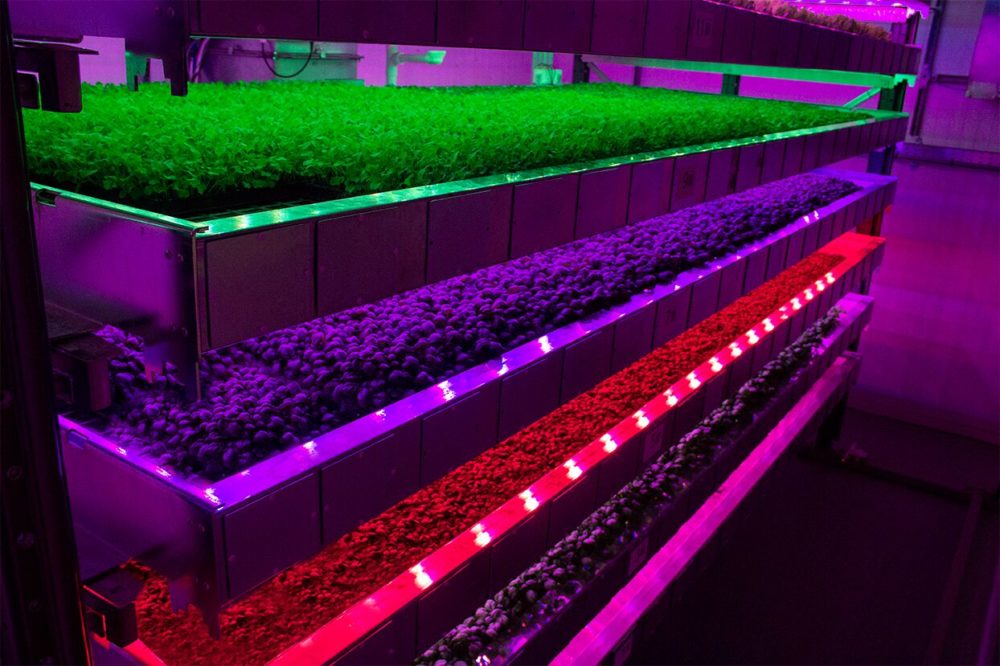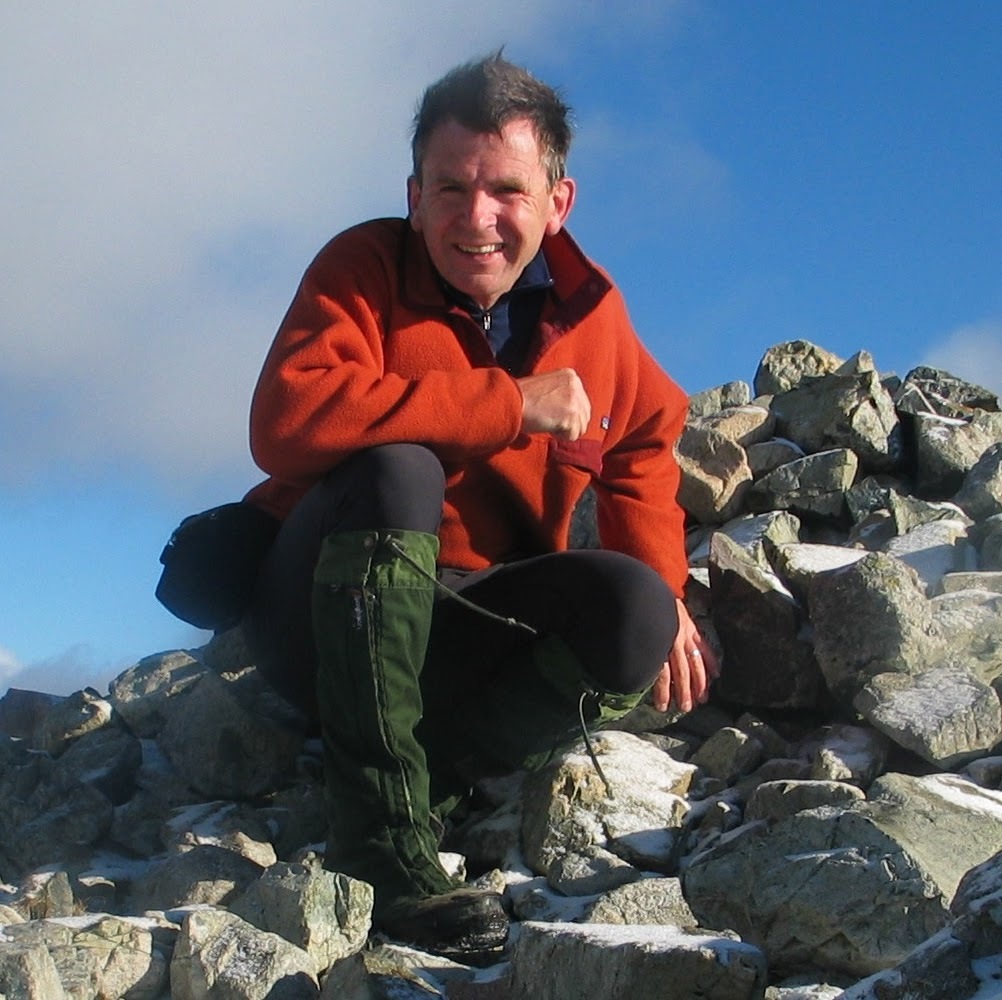Disclosure: AgFunderNews parent company AgFunder is an investor in IGS.
When David Farquhar joined vertical farming tech provider Intelligent Growth Solutions (IGS) in 2017, the company was, in his words, little more than “an R&D project with no real business structure.”
One Brexit and a global pandemic later, Scotland-based IGS is a $300 million+ business, has farms operating on four continents across hundreds of crop species, and employs over 200 individuals. The company, which supplies vertical farm technology to growers rather than growing crops itself, is widely regarded as one of the most successful in an industry still weathering a major correction phase that’s seen countless others go bust.
“We built a seriously grown-up business from a scrappy kid,” Farquhar tells AgFunderNews during a recent conversation.
That conversation came shortly after Farquhar stepped down from his role as CEO to tackle other challenges around sustainability and global welfare.
Below, he discusses what led him to IGS in the first place, how he led the company from R&D to a global player, and what he plans to do next.
[Disclosure: AgFunder, AFN’s parent company, is an investor in IGS.]

AgFunderNews (AFN): How did you first become involved with Intelligent Growth Solutions?
David Farquar (DF): Well, I had actually retired after I’d sold my previous business in the middle of 2016 on an 11x multiple after about two and a half years. I was merrily combat gardening on the back of that, because when you’ve been building businesses and not looking after your own garden, it is a fight to get it back to where it was!
During this time, my wife had just finished her cancer treatment and was preparing to get back to her volunteering work when she started challenging me about my next steps. Shortly after, I got a call, from a partner at the private equity house that had backed my last business, to invite me to see his dad’s R&D project near Dundee [Scotland]. So I went to see this incredible piece of technology — the vertical farm — and as a trained chef (and foodie) who loves the environment, I thought, well, if I’m gonna do anything, I may as well have a go at this, because it’s a brand new and impactful space.
AFN: What was your initial role when you joined IGS?
DF: My role at IGS began on an interim basis. I was intrigued by the project but wanted first to determine if it was real and viable. Could it attract serious, deep-dive investors focused on what I now learned was “agritech”? This would be the best form of competitive validation. Could we find it a unique place in the world? Could I attract an international-class management team? Those were the three key questions I needed to answer. So, essentially, I was evaluating its potential in a new and emerging sector.
AFN: Upon evaluating IGS, what distinguished it from other vertical farming companies?
DF: I’m a great student of Geoffrey Moore, and so many vertical market sectors that I’ve been involved with have followed — to a greater or lesser extent — the pattern of “Crossing the Chasm.” And the thing that struck me more than anything else was that in the US, and to an extent places like Germany and Japan, there were innovators building versions of this vertical farm idea and trying to operate [those farms] themselves.
Now, you know, in order to do that, you not only need to raise the capital for all the R&D, but you’ve got to raise the capital to build large operational assets and for market development. And then you’ve got to raise all the capital to actually operate at margins, which, in food for the most part, are not great. There were companies like Plenty and AeroFarms who were raising hundreds of millions or even billions of dollars and apparently not really generating much revenue. A conversation with a neighbour, a farmer, really struck me. He said he would never try to build his own combine harvester, he’d buy or lease it. That conversation influenced the strategic direction to focus IGS on being a technology provider, not an operator of farms: the growers are the company’s customers.

AFN: Can you describe the condition of IGS when you first came on board?
DF: When I first joined, IGS was essentially an R&D project with no real business structure — it wasn’t even quite a startup yet.
There were about eight people involved, including an engineering team and some support roles like PR and accounting. It was at a very early stage, without a clear path to commercial viability. There were no sales, the product wasn’t finished, it had the wrong strategy, no institutional investors — or even a viable business plan — and was valued at around £12 million [$15.3 million].
But: the team was dedicated, seemed very bright and the tech felt world-class, so I took a deep breath and dived in.
AFN: What were some significant challenges after the Series A funding?
DF: Our Series A funding was kicked off by AgFunder in Silicon Valley (thanks guys). AgFunder introduced us to S2G Ventures in Chicago and Ospraie Ag Science in New York: this was my validation. Those VCs were joined in the round by the Scottish Venture Fund.
Almost immediately we encountered significant challenges due to Brexit, which affected labour availability and market access. Soon after, COVID-19 presented a major hurdle; selling a highly physical product during a global pandemic was extremely difficult. The ability to showcase our farms in person was crucial, and travel restrictions severely impacted that. Then Russia invaded Ukraine!
AFN: How did you develop the workplace culture at IGS?
DF: Developing the workplace culture at IGS involved building a vision around the impact of our work, on climate change and global food supply. This resonated strongly with our team, particularly attracting individuals motivated by purpose rather than just a pay cheque. And, you know, I worked very hard to ensure that we were bringing on people who had talents that we certainly did not have.
We wanted to be as diverse as we could and most of the middle management in the company were women, particularly in technical jobs, including our head of software engineering, head of crop science, head of data science and head of global deployments.
Developing a new business with this degree of complexity in a nascent market takes a huge collaborative effort. At our “Gathering” in 2022 we figured out that we employed over 70 different job titles or functions including almost 15 STEM disciplines: a genuine team effort. We grew the company from eight people to well over 200 and had a staff turnover of less than 3%. In an extremely competitive market in Edinburgh and Scotland, openness, honesty, trust and a commitment to these values helped cultivate a strong internal community.
AFN: How did the Series B funding round differ from the Series A?
DF: For Series B, we leveraged our growing reputation and the exposure from events like COP26 to draw interest without traditional marketing or financial advisors. This round was heavily (20x) oversubscribed on a 10x uplift in valuation starting only 18 months after the second close of the A round, affirming the strong position and confidence in our business model as well as strategic direction.
AFN: It sounds like an amazing journey that people have been following in the worldwide media and on LinkedIn, so how was IGS when you turned 65?
DF: Yes, I turned 65 at Hogmanay last year – 31 December for the non-Scots.
I’m proud to look back on the differences compared to the R&D project that it was six years earlier. At COP28 we had met two Kings, including our own, several heads of government, and announced to the world’s press that an agreement to start building a series of “Giga-Farms” in the Middle East, starting in the UAE, was signed.
Each of these farms will grow around 2.5 billion plants a year including the mangroves we proved for COP 28, replacing 1% of all the food flown into the UAE each day.
On my birthday we had over 225 on the team, farms operating on four continents, over 250 species successfully grown from roots and fruits, to trees, flowers and leafy greens. Revenues had grown well in 2023 and at the last valuation, the business had risen to around £250 million. Even at that point, IGS was easily the leading player in the global vertical farm market and, with the momentum of the Giga-Farms, has developed a clear path to massive growth and profitability.
We built a seriously grown-up business from a scrappy kid. I just hope the crew can continue to bring it on to full maturity because the potential is enormous.
AFN: In hindsight, what would you have done differently at IGS?
DF: Looking back, I would have pushed for establishing my vision for the IGS Global Research Network much earlier. This would have bolstered our ability to build an in-market presence in territories where we were building the most traction, so customers could see the tech working locally.
Additionally, forming partnerships with asset financing firms could have addressed some of the conservatism and project financing challenges our customers faced in the market due to the energy and financial crises resulting from the three macroeconomic events listed above.
There were also a couple of hiring decisions that we got wrong. And you know, I had put a lot of faith in people I’d worked with previously; some of those relationships worked really well, others, in the end, did not because people had moved on: they had probably changed more than I imagined they might have done in the intervening period. So there were one or two hiring decisions, including a couple of my own, that I should probably have thought more about.
AFN: What advice would you give to other founders based on your experiences?
DF: My advice to other founders is to trust your instincts but also be prepared to act decisively when needed. While collective decision-making is valuable, there are times when a leader must step forward to make bold decisions to capitalise on emerging opportunities or navigate challenges.
But overall, never hire “yourself.” Seek out people with differing views, talents and approaches – then give them permission to succeed. I love the instruction “proceed until apprehended.” I believe strongly in servant leadership, something I learned in the Army: supporting people smarter than you is a happy place to be.
AFN: What are your plans after leaving IGS?
DF: I think I am done with the CEO thing now, but I am still looking to engage with companies and organisations where I can have a meaningful impact, particularly those aligned with sustainability and global welfare. I’ve had an extraordinary number of approaches from companies, investors, institutions and universities, and from some NGOs.
I love a challenge and helping fix things: I was not cut out to be a janitor, so I’ll take my time to find the right opportunities where I can add real value in exciting, growing environments. And that’s what I’d like to do with the rest of my life, as well as being a good husband; a good father; seeing my kids be successful; spending more time with Debbie; and doing things that are going to have a positive impact on the planet. And in the end, going to sleep with a clear conscience and a sense of achievement.





